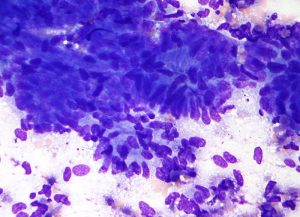High-dose vitamin D shows benefit in patients with advanced colorectal cancer
Prompted by the "very encouraging" results of the SUNSHINE clinical trial, the potential benefits of vitamin...
Sinister blastocystis: a clandestine killer of good bacteria revealed
Since most of the microbes in our gut are bacteria, they tend to hog much of...
Right combination of diet and bacteria limits cancer progression
The diet of a person can have significant effects on the gut microbiome, i.e. the populations...
















